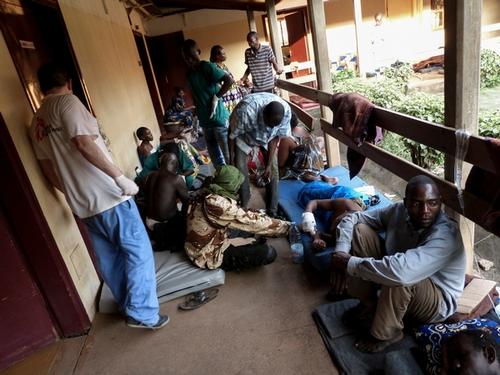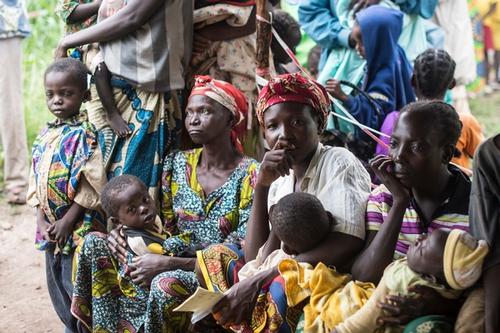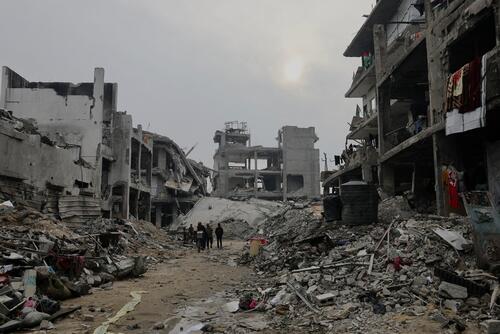Chronic emergency
This violence is the latest in an outbreak that began on 5 December, when massive clashes resulted in 190 wounded being brought to l’Hopital Communautaire, the main hospital in Bangui, where MSF is currently handling emergencies. This violence only aggravates a chronic emergency humanitarian situation that has persisted in the Central African Republic for years.
“In the days leading up to the 20th, we had seen fewer cases overall, and in particular a reduction in gunshot wounds,” said Jessie Gaffric, project coordinator at the hospital. “Then, on 20 December we saw 49 gunshot wounds, and now continue to receive around 15 a day.”
Respiratory tract infections
As more and more people flee their homes and seek security in the displaced peoples camps around the city, the number of lower respiratory tract infections MSF is seeing has doubled. At its field hospital in the displaced camp at Bangui airport, approximately 16% of the 450 daily consultations are now related to such infections.
“The lack of shelter and other aid provided to this population is making them sick,” said Lindis Hurum, field coordinator at the project. “The deteriorating living conditions in the camp are clear from the cases we are seeing. We continue to call on other agencies to step up their efforts to improve conditions in the camp, or they will continue to suffer and we will continue to see the consequences in our projects.”
MSF has been working in CAR since 1997 and is currently managing seven regular projects (in Batangafo, Boguila, Carnot, Kabo, Ndéle, Paoua, and Zémio) and four emergency projects (in Bangui, Bossangoa, Bouca, and Bria). A mobile emergency team covers the displaced persons’ camps in Bangui.
By the end of the year, MSF hopes to be able to launch activities in the hospitals in Bangassou and Ouango. MSF currently offers free medical care to approximately 400,000 people and provides approximately 800 hospital beds. We are working in seven hospitals, two health centers, and 40 health posts. Our teams are composed of more than 100 expatriate health care workers and around 1,100 Central African Republic staff.






